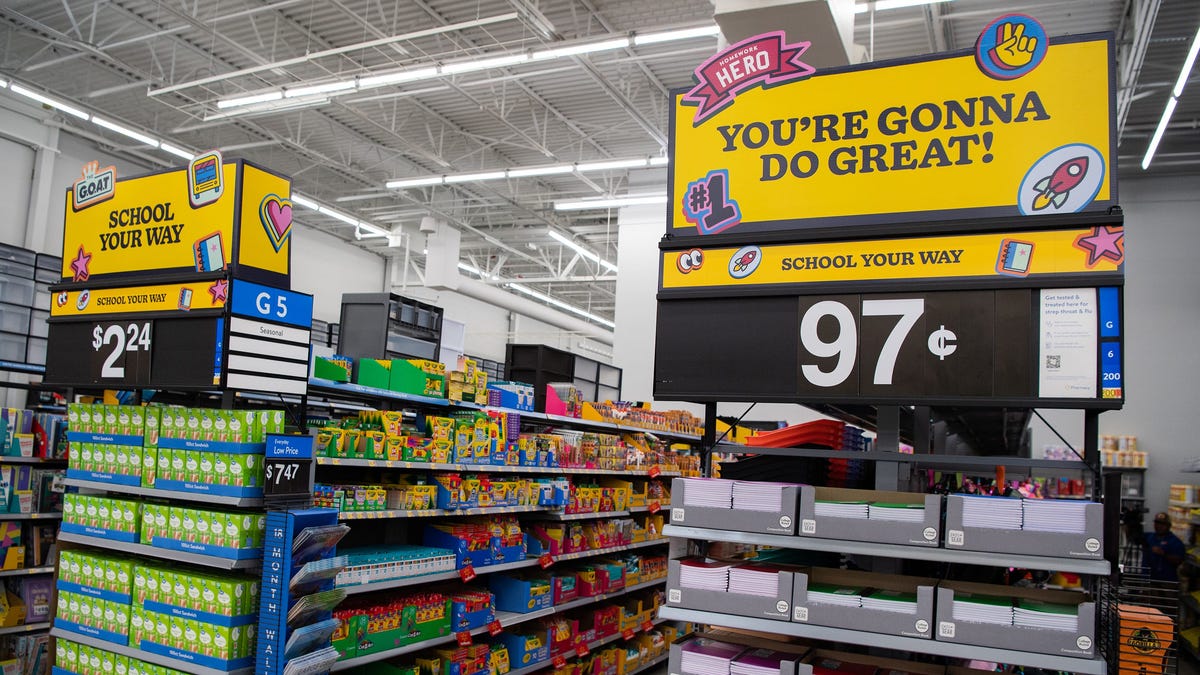
Brooding Deep thoughts on modern family life
Kathryn Jezer-Morton
Recently I was served a TikTok showing a mom taking her daughters out for ice cream. While we watch the girls enjoy their treats, the mom’s voiceover describes how their homeschool curriculum is preparing them for a life of financial independence. From early childhood, these girls are learning to invest. They are learning about stocks, about compound interest. They are training to be self-made millionaires, the mom proudly concludes, and anyone can do this while homeschooling your kids.
Homeschooling is hot right now. Last year the Washington Post reported that homeschooling has increased by over 50 percent since 2017, making it by far the fastest-growing segment within primary-school education. What used to be the domain of religious fundamentalists is becoming not only mainstream but, inevitably, aspirational. It’s an increasingly visible choice among family influencers; several of the most successful momfluencers I have followed for years, who don’t appear especially religious, have announced their intentions to homeschool.
I have nothing against homeschooling per se, and I know there are many valid reasons to take this route. As Sarah Jones wrote last year, there’s a long history — a context in which we are existing, you might call it — of hyperlocalized schooling in the United States, that has always existed alongside public schools. But let’s not forget the reason public schools were funded in the first place: as social equalizers where communities can come together for the benefit of their children. When enough people pull their children out of public school, at a certain point, the public schools start to lose out. One of the moral consequences of the individualistic nature of this country is that no one has to shoulder any responsibility for their personal choices. This blissful arrangement will last until the only people left accessing public services are the ones with absolutely no other choice. It’s a great system we got here.
A large-scale migration away from public school deserves close scrutiny. There are more than enough bad-faith critiques on both sides of this argument. A common one among homeschoolers is that the classroom is an authoritarian space where kids are trained to be obedient sheeple. This is bullshit: Kids these days are world-historically disobedient. Besides, many homeschoolers seem perfectly happy with authoritarianism if it’s coming from their president. Meanwhile, critics of homeschooling argue that it robs children of social opportunities. But many homeschoolers belong to groups that meet regularly, where there are plenty of friends to be had. It’s the only children of working parents whose isolation we should probably think about, not the fifth-born child of a homeschooling family. Ultimately, neither side of this debate appears to be saying what they really mean.
No doubt that parents can be committed and inspired teachers. But teaching well is an elite skill, and the homeschooling boom seems to be predicated on a fundamental misunderstanding of the role. When a teacher really gets under your skin with an idea, when they teach you something that becomes a part of you, they can seem, briefly, more than human. Ideas are bigger than any of us when they are well-articulated. It’s good to have a little distance from our teachers, so we can relate to new ideas on our own terms. There’s something vaguely monomaniacal about this increasingly common desire to be your child’s parent and teacher. It implies that anyone can teach, that all you need is energy and basic literacy. The homeschool boom, steeped as it is in a desire to control what children are exposed to, suggests an updated dream for American families: a chicken for every pot and an overcaffeinated stay-at-home mom brandishing an iPad for every pupil.
I can’t deny that the lowkey megalomania embedded in the homeschooling boom reminds me of a certain someone. How you teach is what you teach, and if homeschoolers consider taking one’s place in a classroom an unfair compromise rather than an opportunity, what does that teach children about, say, participating in a tedious but necessary democratic process like voting? What kind of electorate are we raising, if we’re teaching children that “freedom” means doing whatever you want?
I recently watched a new documentary, Join or Die, which traces the evolution of the political scientist Robert Putnam’s lifetime of research that came together in his blockbuster book from 2000, Bowling Alone: The Collapse and Revival of American Community. Putnam’s basic argument is that when people belong to clubs and groups — of any kind — civil society functions better. People have more faith in their governments and therefore make demands and hold their elected officials accountable. Services are rendered. Social trust increases. Putnam found that toward the end of the 20th century, club membership was plummeting, and so were many measures of social cohesion. Putnam didn’t coin the term “social capital” — the idea that human relationships have value — but he popularized it.
While watching the film, I kept thinking about the homeschooling mom on TikTok, teaching her daughters about personal finance. Outlining a plan for becoming a self-made millionaire definitely makes for snappier content than, say, lessons about civics and how to run a fair and efficient community meeting. As Putnam remarks in the documentary, getting a group to do anything, whether you’re talking about a social club or a city government, can be kind of a pain in the ass. But social capital — the value accumulated through relationships of trust and reciprocity — makes the gears run.
Is the homeschooling boom another way that Americans are bowling alone? Relationships make up a lot of — sometimes most of — what happens in school. You find out who you trust and who you don’t, you experience boredom and anxiety and excitement, and you learn, over the course of your many hours of mandatory attendance, where you fit in. The notion of “fitting in” can have a whiff of negativity around it, suggesting social pressure and conformity. But fitting in is also a neutral process. Taking your place alongside other people is actually … good. According to Putnam, and to most social scientists, this process is essential both for individual well-being and for the well-being of any given social group. The loss of social capital is also what’s at stake in another huge social-problems book, this year’s The Anxious Generation.
But enough hand-wringing from the white-haired social scientists. What do the homeschooling influencers have to say? They represent a growing demographic among family influencers, no doubt in response to the emerging market for homeschool curricula fueled by this trend. It seems like homeschool resources represent a new way to monetize your home life through sponsorships and affiliate links. Five years ago while doing my doctoral research, a momfluencer told me off the record that in her line of work, potential income is pegged to the birth of new babies. As children grow, the income associated with their content tends to fall off, so many momfluencers were having more kids in part as a way to keep their numbers up. (She was adamant that she didn’t know of anyone who was having kids “for the money” but that it couldn’t be denied that babies generated the most engagement and, in turn, the best ad rates. A happy coincidence was how she characterized it. If you say so!)
But you can only have new babies for so long before a different revenue stream becomes necessary. I suspect that for many momfluencers whose children are getting older, pivoting to homeschool content makes financial sense. Home was already a site of income generation, and having the kids at school all day represents the loss of many hours of potential content. This is homeschooling as a domestic industry.
Family influencers have always relied on the nuclear family as a visual shorthand that makes it easier to make sense of the content as you’re scrolling quickly by: Mom, Dad, and kids. Other helpers tend to muddy the brand messaging, so it’s easier, strategically speaking, to keep them out of the content. Almost all momfluencers hire helpers to clean the house and care for the kids, and they often cop to it when their followers demand receipts. But they very rarely show the helpers’ faces.
This creates the effect of a perfectly independent family unit, cleanly self-reliant, untethered to any annoying community obligations. Bowling alone might start out as an aesthetic choice for family influencers — local randos would look out of place in the family’s branding — but it evolves into an ideological choice. I think that’s where we’re at with homeschooling influencers. Homeschooling starts to seem like the logical choice, when you’re earning an income based on your family’s nuclear structure. But it’s also having the effect of neutralizing the moral implications of a choice that has real consequences for communities and children. Homeschooling your children is more than just an opportunity to harmonize the aesthetics of their entire world and emphasize certain lessons over others. It’s a move away from the inconvenient chaos of contemporary life and the fraying net of social capital that holds us all together.


